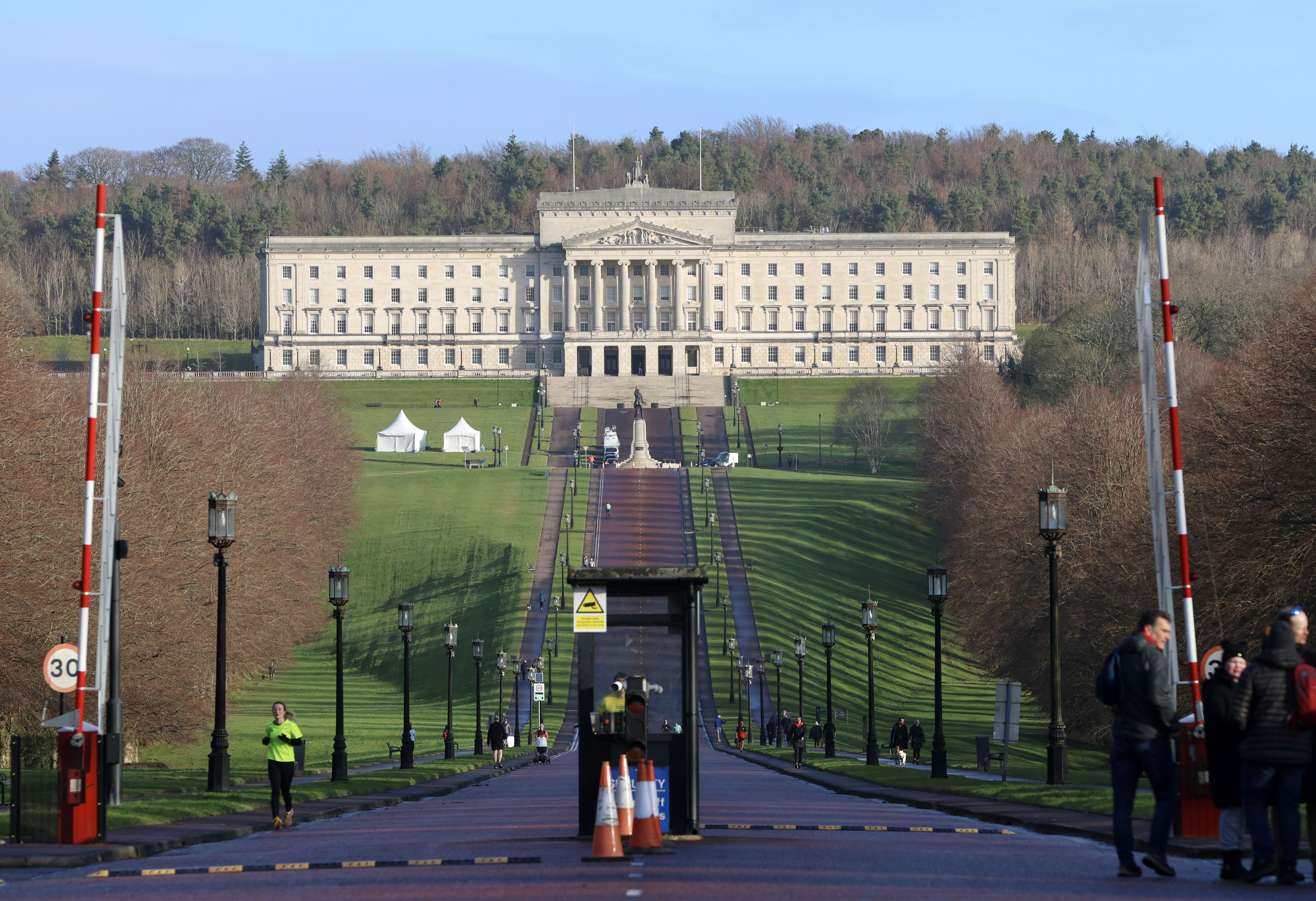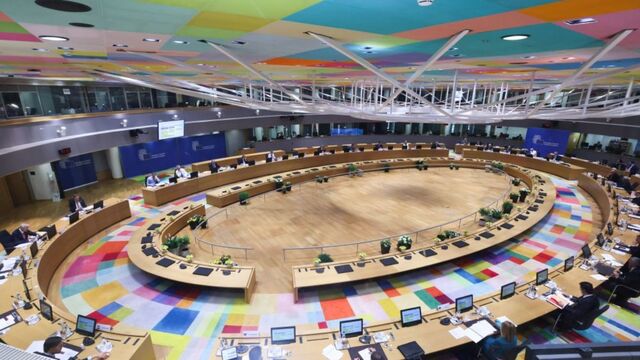IF we were to listen to and accept at face value those in the media who criticise the Assembly and the Executive as ineffective, and who question their value or use, we would mothball both institutions and sack the MLAs.
Yes, there is justifiable frustration at the failure of the institutions to address concerns on health and education and delivery on Casement Park, saving Lough Neagh, building the A5, delivering for Gaeilgeoirí, tackling poverty and hate crimes and legacy issues alongside problems in our public services. But that is not the fault of the institutions. It lies with the political parties and others who are blocking progress.
Yes, there are problems, but it is wrong to tar all our politicians with the one brush and it would also be wrong to hand over responsibility for these issues to unelected civil servants and to the British government. That would be irresponsible and stupid.
Does anyone really want another British Secretary of State running this place? There have been 25 British Secretaries of State, mostly mediocre and forgettable, including some who contributed enormously to the conflict.
We also need to appreciate that the London government is adding to the difficulties faced by an Executive which doesn’t have the financial resources to tackle some of the issues of greatest concern. All of this is an argument for the end of Westminster rule. We need to say that loudly and often. London has never ruled us in our best interests. We who call this place home are the only ones entitled or fit to do that. That includes our unionist neighbours and their representatives.
The reality is that the Northern statelet was not and is not a normal society. Partition was a unionist- and British-imposed response to the demand by the people of this island to independence and sovereignty. The unionist regime at Stormont immediately and successfully deepened political and sectarian discrimination and the inequalities that were part and parcel of colonisation. The Northern state was a place where non-unionists were to have no say in its running and where the institutions of the state were closed to us.
After 78 years of ‘Northern Ireland’ the Good Friday Agreement began a process of fundamentally changing that system. It is a process. The Agreement was and is a unique arrangement to facilitate conflicting political visions. Republicans decided to enter Stormont – a place that represented all that was wrong with the Orange State – because we believed that a space was needed in which we and unionism could moderate our differences. Other venues were considered but we believed that unionists would be comfortable within the Stormont setting. And we opted for that.
However, did anyone seriously think that generations and centuries of colonisation and prejudice could be overturned quickly? That the deep-rooted antipathy to all things progressive or rights-based, never mind nationalist or republican, would disappear overnight or even in the short term?
Only the most naive or stupid among us would have thought the British State would acknowledge its wrong doing and embrace equality and democracy? No, dear readers. It was always going to be a battle a day, a process that demanded and demands perseverance, doggedness, generosity, resolve and strategic focus. Especially strategic focus.
Yes, we need delivery now on many issues but we also need always to see beyond the shortcomings of the present system and always be trying to win support for a more democratic system to deliver an inclusive future. And we should never let any subversion of the current arrangements rob us of our rights. And we should have faith in the good sense of many nominal unionists who are disenchanted with the union and with some unionist leaders.
Since the Agreement was achieved in April 1998 elements of unionism have battled against it every single day. For some it’s about diluting the Agreement and erecting obstacles to much-needed public service reform or common sense cross-border economic ties. For others it’s about placing a dead hand on the institutions and any progressive policies that could deliver equality and potential beneficial improvements, even if they are in the interests of their own electorate. Their preference is for the Northern state to remain locked into a failed relationship with Britain, which itself is facing its own constitutional and political crisis.
This intransigent view of the world has been reinforced by the shift in voting patterns resulting in the unionist parties now being in the minority within the Assembly and in Westminster, and Michelle O’Neill emerging as First Minister last year.
It also needs to be acknowledged that the DUP, UUP and TUV are deeply conservative. That is evident in their attitude to policy proposals affecting the rights of women or housing provision, migrants and the Israeli state’s genocide on the people of Palestine.
Nationalists see the Agreement and the institutions – however challenging and difficult this may be – as an opportunity to reverse or to stop the injustices of partition by the full implementation of the Good Friday Agreement while democratically and peacefully arguing for Irish unity as the obvious solution to generations of misrule. We are for a new Ireland and we need to keep working toward that objective, while making life better for the people of the North and the island,as we do so. Some unionists say they want to make the North a better place for everyone. But rhetoric alone will not do this. They need to deliver. They need to make politics work. And they need to face down the naysayers in their own ranks if it comes to that. Otherwise they are going nowhere.
It is mostly this unionist opposition to change that has undermined the Assembly and created significant challenges for the Executive. Until this term both have been up and down repeatedly. And there have been notable failures – some of which I mentioned earlier. But scrapping the institutions will not overcome these challenges.
The Assembly and Executive and the connecting all-island institutions are important for building on the opportunities for progress created by the peace process. Of course the Irish government is central to this. Unfortunately, our current Taoiseach has no real interest in leading this imperative or in fulfilling his obligations. Notwithstanding this, Irish unity and the desirability of a new Ireland are now a central part of political debate.
Without doubt there will be a referendum on the future. There will be an opportunity to set aside the failures of the past, and the present. The people will decide. Some unionists fear that democratic Rubicon. So do elements of the Irish establishment.
The institutions of the Good Friday Agreement are a vital part of managing this process of change, including persuading the Irish government to begin planning for unity through the creation of Citizens’ Assemblies.
So, we have to remain focused on the future. Be patient and resolved and positive in our determination to build friendships across the sectarian divide. And make the institutions work to the best of our ability while always at the same time creating the new Ireland.
Stand up for Irish language rights
IN May 2022, 20,000 activists took to the streets of Béal Feirste to demand Irish language rights. This An Dream Dearg mass mobilisation of both young and old was highly symbolic, positive, cheerful and confident.
Four days after this protest, the British government took the first step to introduce Irish-language legislation, paving the way for historic social change in the Northern state. This legislation provided for the repeal of the centuries-old penal law ban on the use of Irish in the courts. It also provided the mechanisms to create the office of an Irish Language Commissioner, who will oversee the delivery of language rights in the six counties.
These achievements point to the importance of grassroots democratic movements as part of the fight for a better Ireland. Mechanisms and structures to bring about change have many parts and roles for many people and a range of tactical and strategic requirements, but most important of all these is a movement of empowered activists.
The popularity of the Irish language and its resurgence is proof of just how much can be achieved when the people reclaim our language and our power. This is particularly important given the efforts by some unionists to dilute and delay the modest changes which are now ongoing. And the failure of succesive Irish governments to deal with these issues in their own state or in the North.
This Saturday will provide an opportunity to spread this message. Activists from Dún Chaoin to Dún Pádraig will take to the streets of Dublin to challenge the Dublin government. Organising under the watchword of ‘Cearta’ or ‘Rights’, Irish-speaking and English-speaking activists will mobilise to highlight the absence of Irish language rights, ranging from the housing crisis in Gaeltacht areas, to the crisis in education, and the historic underfunding of an Ghaeilge in general.
Despite the collective goodwill towards our indigenous language, successive Fianna Fáil and Fine Gael governments have neglected it. They spend only 0.1% of total state expenditure on schemes related to the Department of an Ghaeltacht. Indeed, the neoliberal policies of the political establishment in the South are decimating our Gaeltacht regions. They are actively undermining the rights of Irish-speaking locals. This mindset will be challenged next Saturday when thousands of activists will demand transformative change for our language and full rights for Irish speakers.
Bígí linn. Play your part. The recent history of the language movement shows how ordinary men and women, and young people especially, can change the political realities around us. The future remains ours to fight for. “Tá an saol ar bhos ár gcamán” – “Life is on the boss of our hurleys.”
It’s time to face the puck-out.
Gather for ‘CEARTA’ on Saturday, September 20 at 1.30pm in Parnell Square, Dublin.








